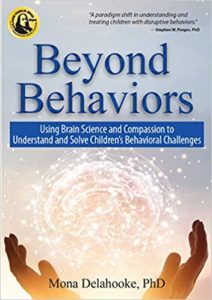It’s been a long time since I’ve written a post. My “baby” is now eight years old, and she inspired this post. I am sharing a recent conversation we had, with her permission, “because all adults should know…”
“Mom, is it weird that I still suck my thumb?”
“I don’t think so. It seems to comfort you. I notice you suck your thumb more when you are worried or tired. Do you think it’s weird?”
“No, but I don’t want to suck my thumb too much because it can push my front teeth out and then I might have to have braces and that would be no fun.”
“True, and I ask you to take your thumb out of your mouth sometimes because it’s hard for me to understand you when you’re talking with a thumb in your mouth. You know, if you wanted you could find other ways to comfort yourself.”
“Not yet. My thumb helps me a lot. When I suck my thumb, it usually means I am tired and need a rest or need to lie down.” (I think back to when she was a toddler, and she would suddenly lie down (no matter where we were) and rock her whole body when she was overloaded with sensory input.)
“It’s really good that you recognize that.”
Silence for a few minutes. Then…
“What are you thinking about?”
“I was thinking about when I was six and I was in my old school in Kindergarten. The rules were that you had to sit up in your chair. You couldn’t lie down, no matter what. (Her voice is rising, indicating stress.) And D. would never let me suck my thumb. A. sometimes let me because she knew I needed to. But that was really hard.” (We are going into our second year of homeschooling. I pulled her from the school after Spring break in her first year, because I realized over Spring break she was a completely different child and the multiple daily meltdowns she had been having reduced to almost none.)
“I didn’t know that was happening, sweetie. How come you didn’t tell me?”
“I didn’t know how to. That’s why I was always screaming. That’s why I like homeschool better. Because you let me rest and you don’t tell me I have to sit up and not suck my thumb when I am tired.”
“I am so sorry that happened and I didn’t know. Do you know you should have been able to take a break and even lie down if you needed to? That’s called an accomodation. There are laws…and that’s what I am teaching my college students about. It means that when a person has a disability, they should be able to do what they need to in order for them to be able to be included and learn well.”
“You mean like the grownups have to be flexible and listen to the kids and let them take breaks to rest and lie down if they need to?”
“Yes, exactly.”
“Mom?”
“Mmmm…”
“I think all grownups need to know this. Can you tell them?”
“I can try. Would it be Okay with you if I shared this conversation? That might help me tell them.”
“Yes! Tell them they should pay attention and believe kids and they should let kids rest if they need to. Kids aren’t trying to be bad.”
So, there you have it everyone. I am so proud of my daughter who has developed such keen self awareness and insight into her own needs and who is becoming a self advocate and an advocate for others.
I feel sad that she had the experience of NOT feeling seen, listened to, and accommodated at the private school I was scrambling to pay for in hopes of avoiding the behavioral approach the public school was proposing (“edibles” as reinforcement for following the rules and behaving “appropriately”).
All adults who teach children should understand that behaviors have meaning and that rules need to be flexible. Children with disabilities are entitled to accommodations that will allow them to be included and learn in classrooms with peers, and they should not have to suffer unduly by being made to conform to adult expectations when an accommodation can reasonably be made. These rights are protected by law.
For more, I highly recommend Mona Delahooke’s book, Beyond Behaviors: Using Brain Science and Compassion to Understand and Solve Children’s Behavioral Challenges.



I was sucking my finger a lot until I was 10 or maybe even later. I often behaved in the ways, which made sense to me but not to my teachers and often not even parents. Yet I am glad that there were very little special accommodations provided for me: this helped me to develop resilience and understanding that I am not a belly button of the world, that I need to adjust to the world rather than feel entitled to the world adjusting to me, and that I can function in the world the way it is.
Furthermore, it made me acutely interested in figuring out how this world works, so I can make it a bit more…. accommodating for all kinds of weirdos. It helped me to understand that it won’t be easy.
Of course, some children would be psychologically smashed without some level of accommodating their needs. By the way, it happens now all the time by denying that “boys need to be boys” and “girls need to be girls.” But it’s a separate topic. What I want to say is that excessive accommodations don’t serve our children need to learn how to deal with the world the way it is. Furthermore, the war cry of “serving the needs and making sure that children are happy” is used by the so-called “peddlers of fast and easy happiness” to hook up our children on addictive substances like computer games, trivialized children books and toys, and regular sessions with a psychologist.
The last paragraph made me feel especially wary. It states: “Children with disabilities are entitled to accommodations that will allow them to be included and learn in classrooms with peers, and they should not have to suffer unduly by being made to conform to adult expectations when an accommodation can reasonably be made. These rights are protected by law.”
The use of “entitled” makes me feel that the author’s pedagogical approach may very easily create grown ups with the indestructible feeling of entitlement. The use of “suffer unduly” may be indicative of facilitating development of victim mentality. The emphasis on “adult expectations” will almost for sure lead to lack of respect to adults including children’s own parents. And referring to the rights “protected by law” condones interference of powerful legal institutions with their universal principles into the delicate and unique fabric of relationships connecting a child to his or her relatives, friends, and care providers.
What an interesting perspective. It’s not one I agree with. My child is learning disabled. She has a number of diagnoses. That doesn’t mean I have lower expectations for her. She works really hard to adjust to and function in a world that has little understanding of or respect for her particular ways of knowing, processing, or being. I dream of a world where she, and people like her, are seen and accepted for who they are and don’t have to constantly be told that their way of being is wrong. She understands enough to understand that she’s being judged for sucking her thumb as a coping mechanism. If my child was using a coping mechanism that harmed someone or something, I would absolutely agree that that would be something that needed to be addressed and changed, but sucking her thumb is not something that hurts anyone or she should be shamed for. I am absolutely advocating for a relationship based approach to understanding, being with, and teaching children with (and without) disabilities, as opposed to a behavioral or top down approach. I am merely pointing out that her rights and the rights of others like her, are protected by law. Check out the ADA (American With Disabilities Act). She is entitled to accommodations which will make it possible for her to participate as fully as possible in school and in the community with her typically developing peers. I don’t believe she should constantly be asked to be the one to adjust to mainstream expectations. Most of us could stand to learn a lot from trying to understand the world from the point of view of the people you describe as weirdos. It’s got nothing to do with coddling or being the “belly button of the world”.